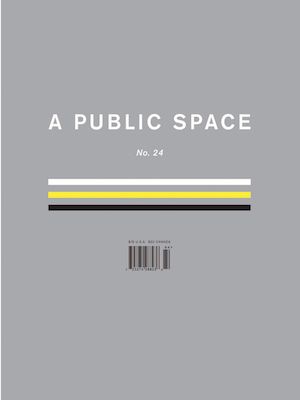Fellow
Trig Functions
April Wolfe
Log in to read the rest.
If you are a subscriber but do not currently have online access, please contact us to link your subscription at subscribe@apublicspace.org
Not a subscriber?
Not yet a subscriber? Join us now, and become a part of the conversation.
About the author
April Wolfe’s stories have appeared recently in Quarterly West the Collagist, Barrelhouse, and the Pinch. A writer and filmmaker, she lives in Los Angeles where she is a fellow at the Los Angeles Institute for the Humanities.
